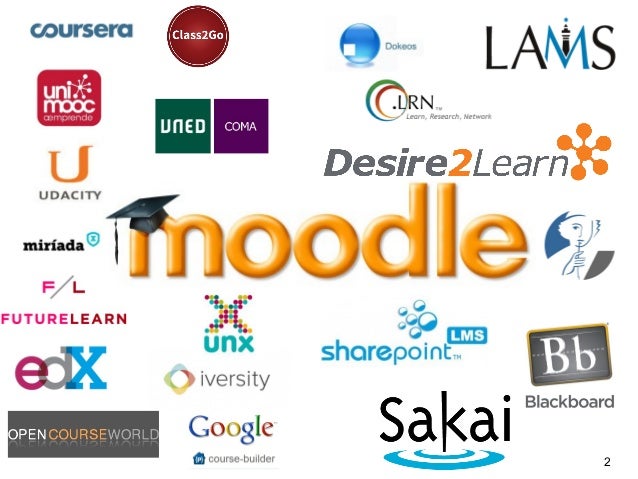At the beginning of the course, while evaluating my knowledge in teaching through New Technologies and looking through ISTE standards I only imagined what they could be. By the end of the course, I know what each of those standards implies.
The most important takeaways from this course for me are the sophisticated implication of new technologies in teaching English. Having no teaching experience at all by now, but after finishing the New Technologies course as part of my MA TEFL, I will use podcasts to enhance learners listening and speaking skills, shared docs to develop collaborative writing depending on the age of the learners. Shared docs can be a very helpful tool for the teacher to assign collaborative writing, but the learners must be computer literate and 13 or even 15+. Another engaging and motivational tool can be digital storytelling. It can be used to bring fun to the learning process and it can be used to enhance speaking skills. Depending on the age of the learners the teacher videotapes the learners while they speak and then creates a video; or if the learners are digital literate and 15+ they create videos by using different software.
To make the learning process fun and engaging cell phone apps can be of much use for young learners aged 7-10 years old: grammar, vocabulary practices can be done self-paced by the learner. This can be an alternative to homework assignments.
Thanks to New Technology course I will manage to help my future students become empowered learners, digital citizens, knowledge constructors, innovative designers, creative communicators and global collaborators.
Working Mother Student
Sunday, December 8, 2019
Wednesday, November 27, 2019
Horizon
Trends, challenges, and technologies for adoption relevant for EFL professionals in Armenia in K-12 and higher education.
Trends
|
Challenges
|
Technologies
for adoption
|
|
K-12
|
Rethinking how schools work Students as creators Rethinking the roles of educators |
Keeping formal education relevant Lack of Digital Media for formative Assessment Ongoing professional development of teachers |
Robotics Games & gamification Mobile learning |
Higher
education
|
Blended learning designs Redesigning learning spaces Ubiquitous learning |
Sustaining Innovation through Leadership Teaching complex thinking Personalizing learning |
Artificial intelligence Online learning Virtual & remote laboratories |
In the table above I tried to summarize most relevant trends, challenges, and technologies for adoption relevant to Armenian EFL professionals.
Rethinking how schools work -this is the most important part of education as each Armenian citizen starts his/her path from a secondary school.
Students as creators - students must start thinking like creators.
Rethinking the roles of educators - educators must be more flexible and more tolerant toward the younger generations.
Keeping formal education relevant
Lack of Digital Media for formative Assessment
Ongoing professional development of teachers - public school teachers must be motivated to participate in ongoing professional development trainings.
Robotics - robotics can be integrated into the school curriculum just like chess is.
Games & gamification - schoolchildren will be more motivated to learn once they are exposed to games and gamification during class time.
Mobile learning - schoolchildren are using mobiles in their everyday routine, why not to make this part of the learning process.
Blended learning designs - higher educational institutions must be able to offer blended learning designs to the students.
Redesigning learning spaces- Higher educational Institutions must create learning labs for students.
Ubiquitous learning -learning must be available anywhere.
Sustaining Innovation through Leadership
Teaching complex thinking
Personalizing learning - projects and learning must be personalized to motivate students more.
Artificial intelligence -students can benefit from using AI technologies
Online learning -online learning must be free of charge.
Virtual & remote laboratories - virtual and remote laboratories will provide a great opportunity for students from remote areas.
Rethinking how schools work -this is the most important part of education as each Armenian citizen starts his/her path from a secondary school.
Students as creators - students must start thinking like creators.
Rethinking the roles of educators - educators must be more flexible and more tolerant toward the younger generations.
Keeping formal education relevant
Lack of Digital Media for formative Assessment
Ongoing professional development of teachers - public school teachers must be motivated to participate in ongoing professional development trainings.
Robotics - robotics can be integrated into the school curriculum just like chess is.
Games & gamification - schoolchildren will be more motivated to learn once they are exposed to games and gamification during class time.
Mobile learning - schoolchildren are using mobiles in their everyday routine, why not to make this part of the learning process.
Blended learning designs - higher educational institutions must be able to offer blended learning designs to the students.
Redesigning learning spaces- Higher educational Institutions must create learning labs for students.
Ubiquitous learning -learning must be available anywhere.
Sustaining Innovation through Leadership
Teaching complex thinking
Personalizing learning - projects and learning must be personalized to motivate students more.
Artificial intelligence -students can benefit from using AI technologies
Online learning -online learning must be free of charge.
Virtual & remote laboratories - virtual and remote laboratories will provide a great opportunity for students from remote areas.
Monday, November 18, 2019
Open Software and Educational Resources
 Given the great opportunity of living nowadays, teacher/educators are granted with so many opportunities for self-develop. Exploring such Open Educational Resource platform as http://orelt.col.org I would highly recommend English teachers in Armenia to spend some time, go over the modules, as they provide very useful and plausible material that can be easily adapted to a particular proficiency level. To be competitive in this rapidly developing country, teachers need to go beyond the methods that were used in teaching back in 1990-2000. Nowadays, we/teachers have so many open free resources that can empower us as educators of the 21th century. Instead of finding a book published many years ago, this open resources provide teachers with most up-to date information in teaching English: methods, ways. Open resources not only provide some food for teachers' thinking but also give ready-made activities to be used in the classroom. Because the material is free and accessible from everywhere the teacher decides when and where to read and reflect on the information. It can help teachers within the same organization, be it a public or private school, teaching centre or even a kindergarden to collaborate, to discuss, to connect to Armenian reality. It may happen that older teachers feel suspicious about these resources, but once they get involved, I really hope, they will use it to benefit for their own sake.
Given the great opportunity of living nowadays, teacher/educators are granted with so many opportunities for self-develop. Exploring such Open Educational Resource platform as http://orelt.col.org I would highly recommend English teachers in Armenia to spend some time, go over the modules, as they provide very useful and plausible material that can be easily adapted to a particular proficiency level. To be competitive in this rapidly developing country, teachers need to go beyond the methods that were used in teaching back in 1990-2000. Nowadays, we/teachers have so many open free resources that can empower us as educators of the 21th century. Instead of finding a book published many years ago, this open resources provide teachers with most up-to date information in teaching English: methods, ways. Open resources not only provide some food for teachers' thinking but also give ready-made activities to be used in the classroom. Because the material is free and accessible from everywhere the teacher decides when and where to read and reflect on the information. It can help teachers within the same organization, be it a public or private school, teaching centre or even a kindergarden to collaborate, to discuss, to connect to Armenian reality. It may happen that older teachers feel suspicious about these resources, but once they get involved, I really hope, they will use it to benefit for their own sake. Monday, November 11, 2019
Parents Concerns about the Effects of Media nad Digital Games
 Nowadays, children are exposed to media and to digital games more often then our generation when we (now already parents) were children. Digitalization has become an inseparable part of everyone's life. Thus, instead of rejecting and struggling with it we need to use it to benefit from it. Being a mother by myself I would recommend parents to have informal everyday routine discussion on the flow of information, especially games played from little members of the family. Children must not be deprived of information flow, but the parents must always monitor the process, must filter very carefully information appropriate to the children's' age. Before banning something for your child remember you at their age; what was your reaction? Because this or that was not allowed to you, you wanted to explore more, you even tried to do the opposite of what you were told, didn't you? I, personally, did.
Nowadays, children are exposed to media and to digital games more often then our generation when we (now already parents) were children. Digitalization has become an inseparable part of everyone's life. Thus, instead of rejecting and struggling with it we need to use it to benefit from it. Being a mother by myself I would recommend parents to have informal everyday routine discussion on the flow of information, especially games played from little members of the family. Children must not be deprived of information flow, but the parents must always monitor the process, must filter very carefully information appropriate to the children's' age. Before banning something for your child remember you at their age; what was your reaction? Because this or that was not allowed to you, you wanted to explore more, you even tried to do the opposite of what you were told, didn't you? I, personally, did.Based on the readings done for this particular topic parents need to monitor the children, as they can not distinguish what is real and what is fantasy (C. McCarthy, Harvard Health Publishing).
According to a group of research psychologists, people who play violent video games are more aggressive as compared to those who don't.
Other researchers point out that "even though more people have spent more time playing violent games in recent years, violent crime rates have decreased" (B. Azar, American Psychological Association).
Tuesday, November 5, 2019
Online learning

Online learning can be synchronous; through applications like WhatsApp and Skype, or asynchronous through e-mail, video, and podcast. Before the start of the online teaching in remote areas of Armenia for young adults, I need to find a teacher in the target area who would be interested to test cohort-based distance learning. To find that teacher I will use my professional as well as friends' network. Once I find the teacher 🙋 who will agree to collaborate, I will design a curriculum in collaboration with the teacher in the remote area.🚉🚗 Thus, we will go through instructional design, which requires appropriate learning theory with the corresponding methodology, objectives, activities, and assessment (D.Gonzales & R. St. Louis). This will be a blended classroom learning; part of the teaching will be done by the teacher; face-to-face; I will join the class the last 15 minutes of each class during the period previously agreed with the teacher. To bring something new to the class every last 15 minutes will be only games, to bring some fun to the learning process. This is an important part of the learning process, something that is really missing in our public schools, be it in Yerevan or in remote areas. I will just instruct the learners with the game's rules and the teacher will monitor the game. The main objective of the course will be the development of particularly 2 skills: speaking and listening. Activities, in this case, games will be designed following the objectives.
Sunday, October 27, 2019
PLE vs. LMS in EFL Learning

Exploring two platforms for Virtual Learning Environment/ Learning Management System - Moodle and Edmodo, I would prefer using Edmodo for learners aged 12 and lower, as the platform was rather user friendly, more eye catching. Besides, students do not need to create accounts to be enrolled, an important factor we need to take into account in case of teaching English to youngsters. Being a student myself and using Moodle as a University platform for all my courses, in case I teach to 18+ students I would integrate it into the learning process. Moodle seemed to me much more complicated from the teacher's perspective, but as a student, I have not encountered any obstacles so far. 👍Moodle can be a great platform for University students as the teacher posts on Moodle and the students get notification emails. Thus, instead of writing separate emails to each student, the instructor makes a post and all enrolled in the course are notified. Comparing VLE and PLE I would note that VLE is limiting the student as compared to PLE. In case of VLE, if the student is not enrolled or invited he/she can not access any course, while, in case of PLE the student is the one who makes his/her own choices.

Tuesday, October 15, 2019
NLP Technologies in ICALL
In a rapidly growing world of new technologies and based on the researches done on their effective usage in language learning, Natural Language Processing Technologies must be first considered whether they help meet pedagogical goals and students' needs. First chatbots were mostly constructed around pattern matching, while current ones seem to be more sophisticated, with some natural processing strategies, but still, pattern-matching is predominant. Based on my first-hand experience of chatbots I must say, that my expectation from it was more then what I received. Most probably I overestimated chatbots' ability and creativity as I thought it would interact like a homo sapience. When I wrote my very first question and received a nonsense reply I realized that this could not be a platform where I could get answers to my questions as compared with a google search, this could only be a platform I could practice English with no sense. The sentences provided were correct, can not deny this, but no logic was in any of the replies. In case of wrong or misspelt words, it would either not understand what I meant or did not just answer my inquiry. I would recommend using chatbots to my intermediate level 18+ adults just to make a little fun. They could practice conversation but because of chatbot limitation in the case of multi-clause units, the virtual participant of the conversation may confuse, not get a logical answer, etc. As a teacher, I would first find the best chatbot, which could at least make correct grammar utterances and only integrate those into the curriculum.
To practice some everyday English nouns, as well as key words for the fashion industry an app chatbox called Mona (Shopping Assistant Chat) can be used. The learner can communicate through written messages. She will ask questions and give a lot of information through menus and messages.

 I really liked ok google voice speech recognition as it not only provided grammatically correct answers but the replies were logic as well. This can be a great alternative to google search, as instead of writing you just say what you want and get the answer. It handles not grammatically correct inquiries but has limitations: long utterances are not handled.
I really liked ok google voice speech recognition as it not only provided grammatically correct answers but the replies were logic as well. This can be a great alternative to google search, as instead of writing you just say what you want and get the answer. It handles not grammatically correct inquiries but has limitations: long utterances are not handled.
To practice some everyday English nouns, as well as key words for the fashion industry an app chatbox called Mona (Shopping Assistant Chat) can be used. The learner can communicate through written messages. She will ask questions and give a lot of information through menus and messages.

 I really liked ok google voice speech recognition as it not only provided grammatically correct answers but the replies were logic as well. This can be a great alternative to google search, as instead of writing you just say what you want and get the answer. It handles not grammatically correct inquiries but has limitations: long utterances are not handled.
I really liked ok google voice speech recognition as it not only provided grammatically correct answers but the replies were logic as well. This can be a great alternative to google search, as instead of writing you just say what you want and get the answer. It handles not grammatically correct inquiries but has limitations: long utterances are not handled.
Subscribe to:
Comments (Atom)